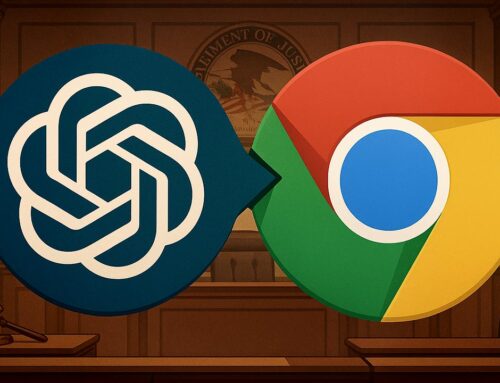How to Change a Negative Opinion of AI, Preferably ChatGPT
Negative Opinion of AI, despite AI’s rapid adoption, has a cloud of skepticism and negativity looming over AI, particularly when it comes to conversational models like ChatGPT. Many people harbor fears about AI, driven by concerns about privacy, job security, and the potential for machines to outsmart humans. These fears are often amplified by sensationalized media stories and a general misunderstanding of how AI actually works.
But what if I told you that your negative opinion of AI, especially ChatGPT, might be rooted in misconceptions? What if there was a way to see AI not as a threat but as a powerful tool that can enhance human potential? In this article, we’ll dive deep into the psychology behind AI skepticism, debunk common myths, and provide actionable steps to help you embrace the benefits of AI, specifically ChatGPT. You’ll learn how to shift your perspective, how AI can be used responsibly, and how it can actually complement your skills rather than replace them. By the end of this article, you’ll have a more balanced view of AI and be better equipped to leverage its capabilities in your personal and professional life.
Table of Contents
- Understanding the Root of AI Skepticism
- Debunking Common Myths About ChatGPT
- The Benefits of Embracing ChatGPT
- How to Shift Your Perspective on AI
- Top 5 Frequently Asked Questions
- Final Thoughts
- Sources
Understanding the Root of AI Skepticism
The Fear of the Unknown
Human beings are naturally inclined to fear what they don’t understand. AI, with its complex algorithms and machine learning processes, often seems like a black box that operates beyond human comprehension. This fear is heightened by the fact that AI is rapidly advancing, sometimes outpacing the average person’s ability to keep up. As a result, people tend to react with suspicion and caution, assuming the worst about AI’s capabilities and intentions.
Misinformation and Media Influence
The media plays a significant role in shaping public perception of AI. Unfortunately, sensational headlines and dystopian narratives often overshadow the more balanced and nuanced discussions. Stories about AI “taking over the world” or “replacing humans” are more likely to grab attention than the real, everyday benefits of AI. This skewed representation fuels negative opinions and fosters a culture of fear rather than understanding.
Cultural and Psychological Factors
Cultural narratives around AI, from science fiction to blockbuster movies, have ingrained a certain level of fear and distrust in the collective consciousness. These stories often portray AI as either a savior or a villain, with little room for the middle ground where most real-world applications of AI reside. Additionally, psychological factors such as loss aversion (the fear of losing jobs, privacy, or control) and cognitive dissonance (the discomfort of reconciling new information with existing beliefs) further entrench negative opinions about AI.
Debunking Common Myths About ChatGPT
Myth 1: AI Will Steal Our Jobs
One of the most pervasive fears about AI is that it will lead to mass unemployment. While it’s true that AI and automation will change the job landscape, it’s not as simple as “robots taking over.” In reality, AI is more likely to augment human jobs than replace them. According to a study by the World Economic Forum, AI could displace 85 million jobs by 2025, but it will also create 97 million new roles, particularly in data analysis, AI development, and human-machine interaction. The key is to adapt and learn new skills that complement AI technologies.
Myth 2: ChatGPT Is a Privacy Risk
Privacy concerns are another common reason for AI skepticism. People worry that AI, especially conversational models like ChatGPT, could misuse personal data. However, responsible AI use is guided by strict ethical standards and data protection regulations. OpenAI, the organization behind ChatGPT, emphasizes user privacy and security, ensuring that conversations are not stored or used for harmful purposes. Furthermore, users have the option to delete their data, giving them control over their information.
Myth 3: AI Is Too Complex for Non-Techies
There’s a misconception that AI is only for tech-savvy individuals or large corporations. The truth is, AI tools like ChatGPT are designed to be user-friendly and accessible to everyone. You don’t need a degree in computer science to use AI effectively. With intuitive interfaces and plenty of online resources, anyone can learn to integrate AI into their daily tasks, whether it’s for writing, research, or customer service.
The Benefits of Embracing ChatGPT
Enhancing Creativity and Productivity
ChatGPT can be a powerful ally in boosting creativity and productivity. Whether you’re a writer facing a creative block or a business professional needing quick insights, ChatGPT can provide fresh perspectives, generate ideas, and even draft content. This allows you to focus on higher-level tasks while leaving the routine work to AI.
AI as a Learning and Development Tool
AI is not just a tool for automation; it’s also a valuable resource for learning and development. ChatGPT can help you stay informed about industry trends, provide instant feedback on your work, and suggest ways to improve. For educators and students, AI offers personalized learning experiences, making education more accessible and tailored to individual needs.
Improving Customer Experience and Support
In the business world, customer experience is paramount. ChatGPT can enhance customer support by providing instant, accurate responses to inquiries, reducing wait times, and freeing up human agents to handle more complex issues. This leads to higher customer satisfaction and loyalty, ultimately benefiting your bottom line.
How to Shift Your Perspective on AI
Educate Yourself About AI
The first step to overcoming fear is understanding. Take the time to educate yourself about AI, its capabilities, and its limitations. There are numerous resources available, from online courses to informative articles, that can help demystify AI and show you how it can be a positive force in your life.
Experiment with AI Tools
Don’t just learn about AI—experience it firsthand. Experiment with AI tools like ChatGPT in your personal or professional projects. The more you interact with AI, the more you’ll see its potential to assist rather than replace you. Start small, using AI for tasks like brainstorming, scheduling, or simple queries, and gradually explore its more advanced features.
Engage in Thoughtful Discussions
Engaging in discussions about AI, whether online or in-person, can help you refine your understanding and address any lingering concerns. Join forums, attend webinars, or participate in workshops where you can hear from experts and peers who have successfully integrated AI into their work. These conversations can provide valuable insights and help dispel myths and misconceptions.
Top 5 Frequently Asked Questions
Final Thoughts
The most important takeaway from this article is that AI, and specifically ChatGPT, is not something to be feared but embraced with caution and understanding. By shifting your perspective from one of fear and skepticism to one of curiosity and openness, you can unlock the full potential of AI as a tool for personal and professional growth. It’s crucial to stay informed, engage in ongoing education, and approach AI with a balanced view—one that recognizes both its benefits and its limitations. Ultimately, the power of AI lies not in replacing human intelligence but in augmenting it, helping us achieve more than we ever thought possible.
Researched
- World Economic Forum: The Future of Jobs Report 2020
- OpenAI: Privacy and Security
- Harvard Business Review: AI Doesn’t Have to Be So Risky









Leave A Comment